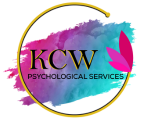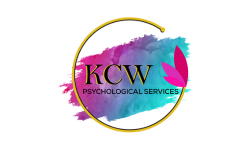ADHD in Adults:
Beyond the Myths to Effective Management
ADHD in Adulthood: Shattering Common Misconceptions
Myth vs. Fact: Understanding ADHD Beyond Childhood
Attention Deficit Hyperactivity Disorder (ADHD) is often associated with childhood, leading to the misconception that it is a condition that individuals outgrow as they mature. However, the reality is that ADHD can persist well into adulthood, affecting an estimated 4.4% of the U.S. population. Breaking free from these outdated perceptions is crucial in empowering adults with ADHD to seek the support and strategies they need to thrive.
The Invisible Struggle: Recognizing Symptoms in Adults
While the hyperactive and impulsive behaviors commonly associated with childhood ADHD may subside, adults with the condition often grapple with a different set of challenges. Symptoms like difficulty maintaining focus, organizational struggles, and issues with time management can significantly impact an individual’s personal and professional life. Recognizing these less overt signs of ADHD is the first step towards accessing the appropriate treatment and resources.
The Impact of ADHD on Daily Life and Relationships
Navigating Work and Productivity Challenges
For adults living with Attention Deficit Hyperactivity Disorder (ADHD), the workplace can often feel like a minefield of distractions and organizational hurdles. Maintaining focus, meeting deadlines, and managing time effectively can be a constant struggle, leading to frustration, underperformance, and strained professional relationships. However, with the right strategies and support, individuals with ADHD can harness their unique strengths and thrive in their careers.
Maintaining Relationships: Strategies for Adults with ADHD
Strong connections are crucial, but ADHD can make building them tricky. Impulsivity, communication struggles, and prioritizing difficulties can strain relationships. However, with self-awareness, clear communication, and a willingness to adapt, adults with ADHD can build fulfilling bonds. Understanding ADHD and using proven coping mechanisms empowers individuals to overcome obstacles. This fosters productivity, stronger connections, and overall well-being. By raising awareness, seeking support, and embracing personal growth, adults with ADHD can unlock their full potential and thrive in all areas of life.
Proven Management Strategies for Adult ADHD
Tailored Treatment Approaches: From Medication to Therapy
Medications: Finding the Right Fit
For many adults with ADHD, a combination of medication and therapy can be a highly effective approach to managing their symptoms. Prescribed medications, such as stimulants or non-stimulants, can help regulate neurotransmitter levels and improve focus, concentration, and impulse control. However, finding the right medication and dosage often requires patience and close collaboration with healthcare providers.
Behavioral Therapy: Techniques That Work
Cognitive-Behavioral Therapy (CBT) has emerged as a powerful tool in helping adults with ADHD develop strategies to overcome the challenges they face. This approach empowers individuals to identify and modify the negative thought patterns and behaviors that contribute to their struggles, while also teaching effective coping mechanisms and organizational skills.
Lifestyle Adjustments and Self-Care for ADHD
Daily Routines and Organizational Tools
Establishing structured daily routines and utilizing organizational tools can be transformative for adults with ADHD. From implementing systems for task prioritization to leveraging digital and physical tools for time management, these strategies can help minimize distractions and improve productivity.
Exercise and Diet: The Underestimated Allies
Emerging research suggests that incorporating regular physical activity and a balanced, nutrient-rich diet can have a profound impact on managing the symptoms of adult ADHD. Exercise can help regulate mood, enhance focus, and improve overall well-being, while a diet rich in omega-3 fatty acids, protein, and complex carbohydrates may also provide cognitive benefits.
Embracing Support and Building a Thriving Community
The Role of Support Groups and Social Networks
Connecting with others who share the experience of navigating adult ADHD can be a powerful source of understanding, validation, and practical advice. Support groups, both in-person and online, offer a safe space for individuals to share their challenges, learn from one another, and develop a sense of community.
Advocacy and Awareness: Changing the Narrative on ADHD
As we continue to shatter the misconceptions and stigma surrounding ADHD, the role of advocacy and awareness-raising becomes increasingly vital. By engaging in open dialogues, challenging outdated stereotypes, and amplifying the diverse experiences of adults with ADHD, we can foster a more inclusive and supportive societal landscape, empowering individuals to seek the resources they need and thrive.


